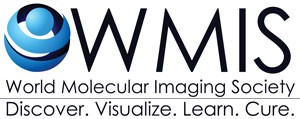Immunotherapies either stimulate the activities of specific components of the immune system or counteract signals produced by cancer cells that suppress immune responses. Recent developments in immunology and biotechnology have led to an increasing number of clinically available cellular and immune-therapies that require administration of biologics and cells of different origins. Here we present an introduction to Immunotherapy and an overview of the different types.
The Biology and Immunology of Cancer Immunotherapy
Victor Engelhardt, Director, Carter Immunology Center, Professor of Microbiology, Immunology and Cancer Biology, University of Virginia School of Medicine.
Presentation describes advances in cancer immunology leading up to this presentation in 2015, and the application of increased understanding of cancer immunotherapy going forward. The talk describes:
- Adaptive T-Cell Therapy
- Anti-cancer Therapeutic Antibodies
- Checkpoint Blockade Inhibitors
- Therapeutic Cancer Vaccines
Immunotherapy: Clinical Response Criteria & Insights into Potential Imaging Biomarkers
Yulia Lakhman, Yulia Lakhman, Memorial Sloan Kettering Cancer Center, New York, USA
This lecture will present insights into clinical response criteria with regard to immunotherapy and potential imaging biomarkers in the area of immune therapeutics. We will touch upon present traditional response criteria (e.g. RECIST, PERCIST). Immunotherapy agents currently in preclinical & clinical trials will be discussed as well as novel immune imaging responses that can be observed with these medications. Looking to the future, we will discuss potential imaging biomarkers and non-invasive tracking of immune cells.
In vivo Imaging of Immune Cells in Immunotherapy
Erik Aartzen, Department of Radiology and Nuclear Medicine, Radboudumc, The Netherlands
This presentation by a clinician addresses optical combinations of imaging parameters, that you can consider in designing research studies. He describes how the optical parameters will depend on the answers that you need, such as: labeling method; target organ; target cells; cell dependent characteristics; imaging requirements; optimal tracer.
